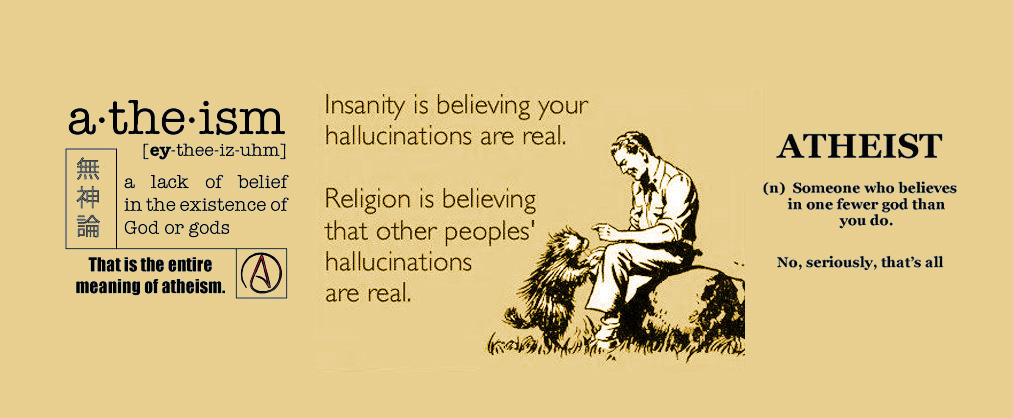This is my attempt to show that, concluding our universe was brought into its current form by the will of an all powerful super-being, is entirely unjustified. Simply conceiving of a natural process that could have brought this universe into existence is to offer a more likely alternative to meaningless supernatural explanations that can’t by their nature be understood.
It’s called “The Universe Tree”
We can make no claim that this is the only universe. Certainly this universe is the only one we currently can perceive. On Earth and throughout the cosmos we never find just one of anything that occurs naturally; so it is at least plausible that our universe is one of many.
Please envision in your mind a “universe tree.” like an apple, peach, or cherry tree, a universe creating tree bears fruit. Each piece of fruit is a universe. A piece of fruit can grow, and it can out-live its creator. It does not continue needing the creator after its creation. The universe tree, like any other, bears fruit without thinking about intent. Trees have no brain to think with, but can reproduce, and do so according to well understood methods. The organism that started out as fruit becomes a tree itself. Perhaps our universe is a descendant of other universes and the big bang observations are characteristics of the natural reproductive and/or birthing processes of universes. Maybe with processes that are similar to cross pollination, when two universes are in close enough proximity to each other, a kind of fertilization can occur that can lead to one or more new universes being created. In this way the creation of universes may be a natural evolutionary process leading to more and more evolved universes brought about by random mutations over many generations.
Based on the observations we have about the nature of reality, which is more likely to exist, a universe that came about from natural reproductive processes that can potentially be understood, or an all powerful creator that can create universes and do anything else as well as continue to exist forever? The first of these requires far fewer assumptions.
Some additional considerations are as follows. Thanks to the amazingly detailed pictures of our universe from the Hubble telescope we can now see for ourselves exactly how stars and planets form from accretion disks through entirely natural processes. There are many examples of all stages of star and planet formation, and anyone who can do a Google search for the term “accretion disks” can see them for themselves. With this understanding as to where stars and planets actually come from, supernatural causation is now ruled out at least as the most probable explanation, in favor of natural causation for our sun and the earth. No god was needed to create any of the planets we see currently coalescing together naturally right now. Assuming our one little planet and star were created magically to look exactly like all the naturally forming planets and stars we see, seems more than a little unlikely when compared to the idea that our planet actually formed just like the rest.
We also understand how entire galaxies coalesce and take shape and how they interact with each other when they co-mingle.
As the planets and stars go, so does the rest of the universe. The majority of leading cosmologists and astrophysicists tell us that everything we can see going back to the earliest moments of our universe’s inflation into this current state, was naturally occurring and is aligned with the current understanding of the physics in our universe.
Steven Hawking (an atheist in spite of what you may have heard), and Neil deGrasse Tyson, among others have convincingly explained that there is no need for a god nor evidence of a god having been involved in anything since the “Planck time” (the farthest moment back in time we can describe via mathematical models) roughly 14 billion years ago. The Planck time is the time it would take a photon traveling at the speed of light to get across a distance equal to the Planck length. This is the “quantum of time”, the smallest measurement of time that has any meaning, and is equal to 10 to power -43 in seconds.
That is to say that we can measure back to the moment that the universe was 10 to power -43 in seconds old. The math that describes all this also perfectly predicts, describes, and is also confirmed by, the Cosmic Microwave Background Radiation, now found throughout the universe.
we now know to a high certainty that there is no need for a god to create all the celestial bodies found in this universe. All the things so far found in our universe appeared to form as a result of the causation of natural physical laws affecting matter, and not by any deities.
So, deities have never been observed to create anything, and everything we can find in our universe is naturally occurring. It is therefore more likely that the universe itself is naturally occurring than created by a deity.
The Kalam Cosmological Argument for the existence of god is commonly reduced to something referred to as the “first cause argument” which claims that a god was source of the inflation event described above. It is often stated that everything has a cause, and if you go back to the first cause, that must be god.
The fallacy here is pointed out by the problem of infinite regress. If you believe something as complicated as a whole universe can’t come about by natural means and there is a creator who by definition must be even more powerful and complex than the universe, then where did this super being come from? and whatever your answer, how can you possibly know it to be true? Seeing as the science tells us the the laws of physics break down at the Planck time, and there may not even be time before the inflation (commonly called the “big bang”). We simply don’t know if there was any space and time at all for a creator to inhabit and use to create. Speaking of a time before time even existed may actually be nonsensical. Making claims about what happened before is nothing but meaningless gibberish, bullshit speculation, and certainly cannot be a proof that god existed before the universe did. The only honest answer is we just can’t know about that right now and we may never be able to understand it.
Another common misconception held by believers is that modern science says that “all this came from nothing” or that we somehow believe that something must have come from nothing. This is not true at all. Having recently discovered the work of theoretical physicist Lawrence Krauss “A Universe From Nothing,” I understand where the misconception comes from. The fact is that what he describes is so hard to comprehend that I had to watch his lecture several times just to understand the basic premises. In short, I will butcher it now by massively oversimplifying it to make a point. At a quantum level certain particles can actually pop into existence. Now that may seem like saying something came from nothing, but when we talk about quantum physics, scientists actually mean something different by the term nothing. At the quantum level, the particles don’t have to originate from within the fabric of space time. We don’t know where they come from but it could be from outside the universe and not just from nothing. It’s simply that we don’t know where they come from, but if you understand the work of Lawrence Krauss you will understand how from just these particles we can discern a mechanism for building all the atoms of matter in the entire universe. Hence the now commonly misunderstood title “A Universe From Nothing.”
I for one certainly do not think that something can come from nothing as we understand it colloquially, but we know that some things come from other things all the time. The Big Bang model is only a description of the inflation of all the matter and space in our universe into its current form. It makes no claim as to where the matter came from. It could be that the matter has always existed in some form or another, expanding and contracting in cycles. Matter may have come into existence through processes described by Lawrence Krauss over previous generations of universe cycling.
Anybody who says “if you think the big bang is true then you think something came from nothing” demonstrates they don’t actually understand the subject of Big Bang Cosmology enough to speak on it with any authority.
intelligent design: How do we know some super powerful entity didn’t plant our particular universe tree in his universe garden? We don’t? But…
http://faithaway.com/intelligent-design/













